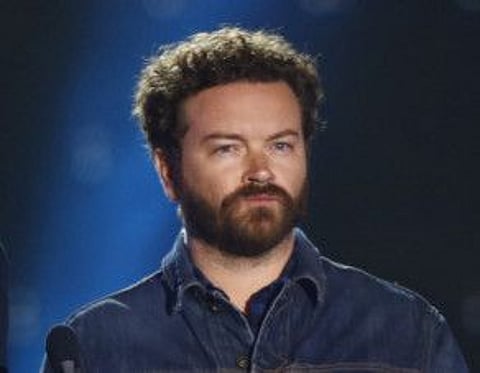Danny Masterson’s ex says rape came years into relationship
Former partner details assault that she faced at Masterson's hands

A former girlfriend of actor Danny Masterson testified on April 26 that he had grown increasingly abusive and controlling during their five-year relationship when he raped her in their bed in November of 2001.
The woman, a model who had begun dating Masterson in 1996, shortly before he gained fame as a star of the sitcom ‘That ‘70s Show’, said there had been previous instances when she woke in the night to find Masterson on top of her.
On this night, however, she said clearly she didn’t consent, and resisted.
“I told him ‘no’... He didn’t listen to me,” said the woman, the first to take the stand in the Los Angeles courtroom at Masterson’s retrial on three counts of rape.
She spoke more quickly and grew more emotional as the story continued. “So I continued pleading with him, like, ‘please get off of me, no.’ And he was continuing. And it was painful. And I remember trying to push his chest up off of me. I couldn’t get him off of me.”
She said Masterson pinned her arms above her head to keep her down. As she struggled, she recalled Masterson’s clearly established “rules” that no one touch his hair or his face, which she had previously heeded.
“If I did this, I knew it wouldn’t be good. But I believed it would maybe make him stop.”
She said she managed to free one arm and yanked his hair at the back of his head. She said he then hit her in the jaw with a partially closed fist, spat on her, and stormed off.
Masterson, who is charged with raping three women from 2001 to 2003, is being tried again after the jury at his first trial was deadlocked on all three counts. He has pleaded not guilty and his attorneys have denied all of the allegations in the trial, saying the women’s accounts are full of inconsistencies and not credible.
Masterson, 47, could get 45 years in prison if convicted of all three counts.
The Associated Press does not typically name people who say they have been sexually abused.
Masterson’s former girlfriend said the rape was an especially dark moment in a series of ugly incidents in their relationship.
She said that after a happy first year, he began seeking to control her life and personality, often invoking the principles of the Church of Scientology. She had joined the church at the behest of Masterson, a lifelong member, when their relationship grew serious, cutting her off from her family in Alabama and from friends who were not members.
She testified that he grew increasingly aggressive with her sexually, and became physically violent, once dragging her out of the bedroom naked by her hair when she refused sex.
She also testified that about a month after the November rape, she and Masterson went to dinner at a restaurant they frequented near their home. She said she drank one or two glasses of wine with dinner, then had no memory between getting up to leave and waking alone and in pain in bed well into the next day.
“He started laughing at me,” she testified. “I asked him if I was unconscious the whole time, and he said ‘yeah’.”
Lead prosecutor Reinhold Mueller said in his opening statement on April 25 that Masterson had drugged her, as he had the other two accusers, though there would be no physical evidence from an investigation that did not begin until about 15 years after the alleged assaults. Judge Charlaine F Olmedo is allowing the prosecution to make the assertion at the second trial, while it was only implied at the first.
Masterson’s attorney, Philip Cohen, said in the defense opening statement on April 25 that those assertions are all the prosecution has, and he told jurors, “there is no drugging charge in this case.”
Masterson is not charged with raping the woman on the night she believes she was drugged. Prosecutors did not share their reasoning in leaving it out, but without her ability to recount the moment and lacking forensic tests for drugs, it would have been difficult to prove within the law.
But the night finally drove her to report him to her ethics officer at the Church of Scientology. She testified that she was told what Masterson had done to her was not rape, that it was not possible given the status of their relationship. She said she was also told that it violated church policy for her to go to police and report a fellow Scientologist like Masterson.
The church, in a statement released after similar testimony at the first trial, vehemently denied having such a policy.
The woman went to police in 2016, long after she had left the church.
She returns to the stand for more questioning Wednesday at the trial that is expected to last four weeks.



